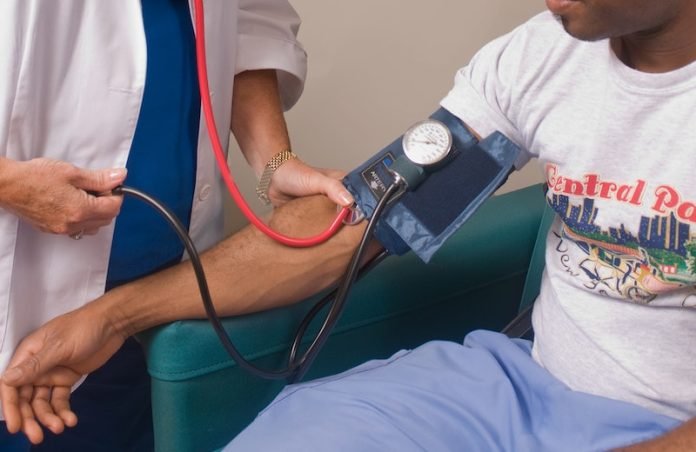
In a recent study from the University of Alabama at Birmingham, scientists found that people with borderline high blood pressure should confirm the readings by measuring their blood pressure outside their healthcare provider’s office.
Some people go to the doctor and find the intake so nerve-wracking their blood pressure spikes.
Others find the routine relaxing, as they’re asked to rest for a moment and breathe easy before a blood pressure cuff is wrapped around their arm.
Nearly 93 percent of U.S. adults who have high blood pressure when measured in their doctor’s office and don’t take blood pressure medicine meet the criteria for “white coat hypertension” because their blood pressure is in an acceptable range when re-measured outside a medical setting.
Meanwhile, about a third of U.S. adults experience “masked hypertension” because their blood pressure levels measured outside of the doctor’s office are more problematic than measurements at the doctor’s office.
In either case, the team suggests that as many as 104 million Americans routinely should use a blood pressure machine at home to provide backup for – or contrast with – the results from their visit to the doctor’s office.
People are considered to have high blood pressure if their systolic, or top number, is 130 or higher and their diastolic, or bottom number, is 80 or higher.
Measuring blood pressure outside of a medical setting doesn’t have to be expensive or difficult.
Reliable home versions with an electronic inflatable cuff can be found at local drug stores for less than $50, and the device should be one that already has been tested and validated.
Other options, such as ambulatory blood pressure machines, can be more involved. Those provide readings throughout the day and night and can flag hypertension while people are asleep.
The study suggests should be measuring their blood pressure at home could make it a daunting task to achieve.
There are barriers to widespread blood pressure monitoring at home: patient compliance, the accuracy of the results, out-of-pocket costs of the device and the time needed to instruct patients on how to take their blood pressure.
What is not subject to debate is the importance of controlling hypertension. The consequences of unmanaged high blood pressure can include heart disease, stroke and organ damage.
The research was published in Hypertension and conducted by Paul Muntner et al.
If you care about blood pressure, please read studies about diet that could help reduce high blood pressure, diabetes, and this gum disease may double your risk of high blood pressure.
For more information about blood pressure, please see recent studies about added sugar in your diet linked to higher blood pressure, and results showing vitamin D could improve blood pressure in people with diabetes.
Copyright © 2022 Knowridge Science Report. All rights reserved.



